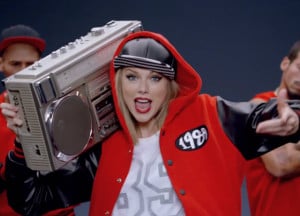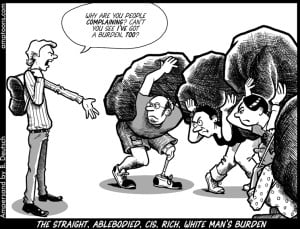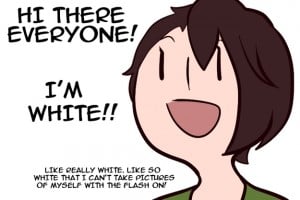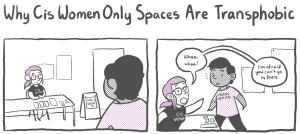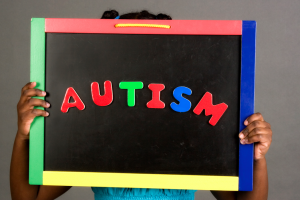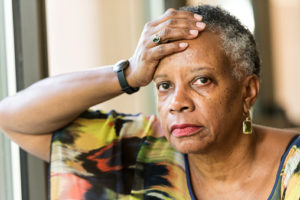
Person with serious facial expression is staring at the camera while hand is resting on their forehead
Originally published on The Body Is Not an Apology and republished with their permission.
It’s well-known that the common enemy amongst communities of color is white supremacy, as well as the institutions that fall under this umbrella system.
Many communities of color fail to examine their own problematic behavior in regards to one another, especially toward the Black community.
But it happens.
So here are seven common behaviors that non-Black people of color may engage in that perpetuate anti-Black racism.
1. ‘It’s Just a Preference’ – Intolerance and Fetishization
Only dating within your race or ethnicity is a choice that is valid and personal. Refusing to date Black (or any race for that matter) folks is not based on “preference,” it’s based on hatred.
No one on Earth has ever seen every single Black person on this entire planet, so to eliminate a group of people because their features are not “preferred” is, and will always be, racist.
On the opposite end of that spectrum is the festishization of Black people.
This applies to all groups, but people of color are capable of doing this to Black people, objectifying our features and hypersexualizing our bodies in order to fulfill a perverted desire.
It is valid to love our features, our skin, our hair, our bodies, but it needs to be understood that within this body, there is a multi-dimensional person with feelings and ideas that needs to be respected.
It is important that the admiration for the Black body happens outside, as well as inside, the bedroom.
2. Being Culturally Appropriative
People of color often forget that we can be guilty of appropriating one another’s cultures.
This is because we think there is a cultural exchange since the “appropriated” and “appropriator” both have rich cultures to share, in comparison to white US citizens who tend to be the just the “appropriator.”
Although this may be true in certain circumstances, the cultural exchange turns into a gray area when cultures overlap, like with Afro-Latinx or Afro-Asian communities.
In order to steer clear of appropriating a culture that is not your own, even though you may think you have access to it, first, self-examine and think about how your place in your community affects you and others.
For example, my cousin may be Afro-Latinx, but am I? Do I benefit from colorism in my community? Do I have any special privileges in comparison to my family or community, or other communities?
Questions like these are important when it comes to relations between separate groups of people of color.
3. Showing Resentment Toward the Movement for Black Lives
“Why don’t our lives matter?”
They do, and no one who is Black and is for the progress of marginalized people ever said that other lives didn’t matter.
Within our community, we have called attention to what our issues are, what we’re going through, and the fact that our community is dying.
Other communities of color should do the same: highlighting their issues, getting organized, and voicing their demands, and if they’ve done this already, keep fighting.
Showing resentment for one group who is suffering is counterproductive and places the blame, rather than forming allyships.
4. Colorism Within Their Own Communities
To clarify, I am not referring to those who are oppressed by colorism within their communities.
I am talking to those in non-Black communities of color who project their colorist ideals onto others who have darker complexions, because they resemble some sort of Blackness and/or poverty.
(Working-class people in many cultures were said to have darker skin because they worked manual labor outside, while “high class” folks stayed indoors, trying to obtain porcelain skin).
Purposefully dating lighter-skinned folks, saying derogatory comments about darker-skinned people of color, or really doing anything that assumes that lighter-skinned folks are more valuable projects an anti-black attitude.
5. Trying to Strip Identities Away
“You’re not [insert invalidating comment here]. You’re [insert assumptions about my identity here].”
There are so many ways to be Black.
You can be Black and speak Spanish, Japanese, French, and/or Patois. You can come from Puerto Rico, Trinidad, or Iran.
We, Black folks, exist in so many different ways and have had so many experiences, and all these experiences are Black.
Those who try to stuff us into a box and say we’re either a or b are stripping us of important identities and are acts of anti-Black violence.
Non-Black people of color need to let other people of color, Afro-Somethings especially, live their multidimensional and multicultural lives, without critiquing their Blackness or their other ethnicity.
As a non-Black person of color, you also have no say on what goes on in Black spaces.
So, staying in your lane would be best for everyone.
6. Microaggressions and Stereotypes
People of color can be guilty of being microaggressive, as well.
Microaggressions directed toward Black folks look like: “You’re pretty for a negra,” calling someone “chocolate,” touching someone’s hair or body parts without permission (which is assault, really) – and many other acts of that nature are acts of violence.
They may not be done with malintent, but when the person on the receiving end is bothered or offended, your “benevolent” intention isn’t relevant.
It’s important to be aware of your words and actions.
7. Saying the N-Word
Yup, we’re gonna hold you accountable, as well as white people.
If your partner, friend, stepparent, old neighbor’s dog’s sister’s owner’s brother-in-law is Black, but you are not Black, you can’t say it.
If you are darker than your friend who is of African descent, but you aren’t Black, you can’t say it.
If you are using it with an “-a” at the end, but you aren’t Black, you can’t say it.
I understand regionally, culturally, and community-wise, these points are loose or strict, but that is up to that particular community or individual person.
If you are unsure of what community you stand with, your best bet is to just not say it at all.
After all, why would you want to use an oppressive word that has put down an entire group of people, just so you can use it in a joke or sing along to a rap song?
There are literally thousands of words to use, and maybe you should think of why this word is your first choice.
And while you think of this, think about your placement in this society, and how it benefits you in ways that it doesn’t benefit the ones who the n-word truly affects.
Honestly, not every Black person uses the n-word in the first place, but they have the choice to use or not use it.
Non-Black people of color don’t.
It’s not as offensive as it is when white people use the n-word because there is less of a power structure dynamic in place.
But when a non-Black person of color uses it freely, they’re saying they agree with this power structure that oppresses Black folks or that Black folks’ place in this structure is funny to them.
Although the Black community can also be up for critique – for we are also not perfect – anti-Blackness rhetoric cannot and will not be tolerated or productive in the liberation of marginalized people.
Non-Black communities of color need to realize that their actions can be rooted in white supremacy and are just as harmful as actions done by white people – and they will be held responsible for such actions.
Joining together as allies, along with respecting each other’s spaces, is more important now than ever, and we can’t do that if we don’t place boundaries within our communities.
[do_widget id=’text-101′]
Search our 3000+ articles!
Read our articles about:
Our online racial justice training
Used by hundreds of universities, non-profits, and businesses.
Click to learn more






